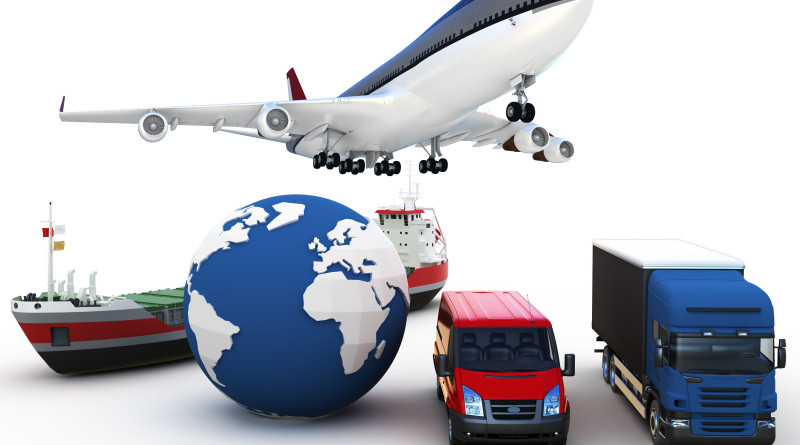Elimination of the management weaknesses of the Georgian transport industry
Jaba Tarimanashvili
Business Administration Doctoral Student, of Batumi Shota Rustaveli State University
Business Analytics
Director of Maritime services and Transportation company – Trans Logistic
In order to make Georgian transport industry challenges more tangible, lets draw a parallel to the music art organization, that most Georgians are familiar with.
To illustrate nature of problem, let’s see the following example: The concert hall aims to have a high quality and harmonious musical sound that the audience will enjoy. The following components are required for this: 1. Musicians 2. Instruments 3. Technical staff and Sound engineer. Sound engineer is responsible to provide to the listener a pleasant polyphony, and ensures that, all the instruments and musician’s voice, is connected in its mixing board, after which the sound engineer performs synthesis and balance, depending on the timbre function of voices and significance of the instruments. The harmonious work of these components creates high quality music, which is pleasing to the ear and heart. But let’s present a similar event so that these components are separately acting, as well as in the Georgian transport industry. For example: the musicians are separately, instruments and the technical personnel are separate. As a result, chaos is created and the concert hall would loose audience and listeners annually. Despite this, what if the hall managment does not make any changes, and loses 50% of viewers over the years. Such inactivity would have negative impact on the economy of the concert hall and the staff. The Chinese wisdom says that “muddy water makes it easier to catch fish”. Perhaps certain persons, in order to “warm their hands,” arrange such chaos and ambiguity. Over the years, a large number of fish are caught by certain groups on account of society. That is why it is time for the government to implement reforms and begin thinking about consolidation and development.
It is important to define the nature of challenges and problems in the transport industry of Georgia. In general, transport industry, is divided into 3 main components:
1. Infrastructure (road, railway, ports, terminals, airports);
2. Vehicles (bus, car, train, aircraft, ship);
3. Management (finances, politics, forming legislative base, creation of systems, project planning and coordination);
Two components: infrastructure and vehicles somehow exist in Georgia nowadays. But the main component that creates, regulates and coordinates these two components – Management, is not well formulated and established. We know that there is a department in the Ministry of Economy that should focus on the development of transport and logistics, but there is a question, on how the organization of industry and the competencies of the departments staff can ensure efficiency.
In Georgia, transport and logistics industry, in fact does not have a single responsible person. There are scarce number of independent institutions working on analytics to observe global and regional trends. Who makes decisions not to make any reform, despite the development of creeping and downward trends over the years? Where is the strategy and vision from transport and logistics policy development department? What do we want to do in the future? Having no responses on those questions, and being in uncertainty, automatically leads country and sector to reap negative results.
Business can successfully work only on smooth, strong, and trouble free platform. Business cannot develop if the government has not created free area and systems to act. Therefore, it is important to pay attention to the third major, and main component of the transport industry – The Management, that is problem of a organizational system in Georgia. The Ministry of Infrastructure, Roads Department, Railway, Department of Transport and Logistics policy development, are separate units, in a small country like Georgia. Because of this, it is likely, that there are problems in coordination, communication, institutional planning, united vision and action. The result is that Georgia does not responsible person for transport industry, with ability to negotiate and optimal solutions in cooperation with the countries of corridors passing through Georgia. Person who would be able to negotiate with railways, ports, governments, terminals and ferry carriers to create a unified policy, that would create barrier free and smooth basement for business development. This would ultimately lead Georgia in comparison with our rival corridors to become more effective and competitive.
Adam Smith in his magnum opus – “The Wealth of Nations” argues, that: “The invisible hand works only if the government can contribute to the implementation of the laws of the market economy and the retention of institutions, which is one of the main reasons for the existence of the government. Intervention in economy should be based only on promoting efficiency and equality”.
To ensure optimal solution of regional, international issues, and form efficient vision and action plan – it is important to consolidate all components of the transport industry within the country. As for elimination of barriers – the number of intermediate companies, personal interests, the abuse of administrative power, should be excluded. These actiona would create business friendly environment, basis and impulse for development. Such a reform would automatically attract freight movement, increase trade and create wealth. The elimination of monopolies, duopolies or preferences to certain groups, and efficient distribution of wealth created by the society, will make the Georgian people rich and happy.

